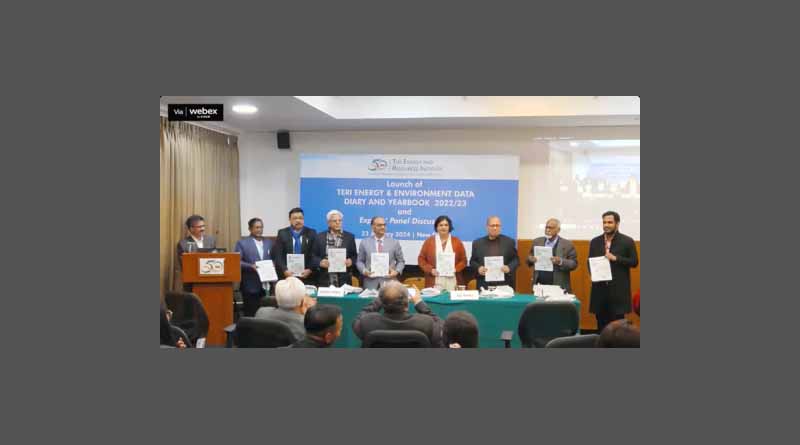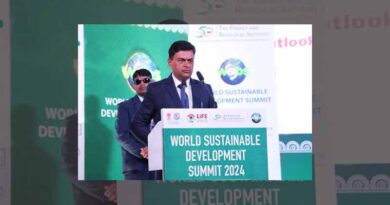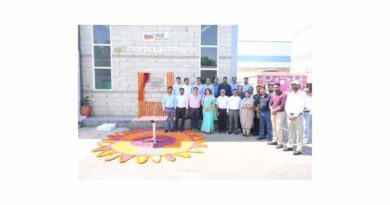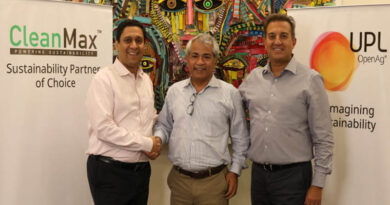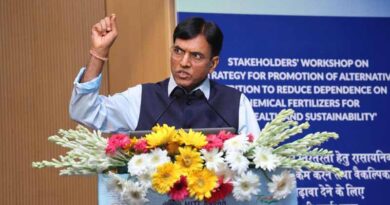TERI launches enhanced TEDDY, revolutionizing access to India’s energy and environment data
23 January 2024, New Delhi: The 38th edition of TERI Energy & Environment Data Diary and Yearbook (TEDDY), the flagship publication of The Energy and Resources Institute (TERI) was launched on Tuesday. The yearbook, a valued reference document and source of comprehensive information on India, provides energy decision-makers with insights essential for future planning.
The revamped TEDDY features analytical insights, user-friendly online access, and monthly updates, reinforcing its relevance for global stakeholders and decision-makers in energy planning and policy formulation
The publication provides up-to-date information on various energy supply sectors, including coal and lignite, petroleum, and natural gas, as well as power and renewable energy sources. It also covers energy demand sectors such as agriculture, industry, transport, residential, and commercial sectors, offering insights into developments up to the period of 2022/23. Utilizing this data, trend analyses of energy intensity for each sector can be conducted, facilitating comparisons of energy intensity across different sectors.
During the welcome address, Dr Dipankar Saharia, Senior Director, TERI, said the launch of TEDDY this year held special significance as it coincided with the 50th anniversary of TERI. Dr Saharia underscored the importance of data throughout history and its application in various fields such as business, sports, and government. He contextualized the significance of data for energy and the environment. Since 1986, TEDDY has served as a testament to the provision of relevant data in the energy and environment sector.
Dr Vibha Dhawan, Director General, TERI, further reiterated the importance of TEDDY. “For a publication to survive for 38 years is a milestone. Back in 1986, it was difficult to collate data. The internet was not there, and the computer was not available to everyone. So, a publication of this kind was a bible for those working in the field of energy and environment.”
Dr Dhawan also shared her view on the importance of energy in the current times, particularly in India. “The cost of energy generation in India will be less in future than many countries, because of the advantage of sunshine we have,” she said, emphasizing on the need to review energy data as a guiding document to achieve the goal of energy efficiency.
Setting the tone for the event, Mr Ajay Shankar, Distinguished Fellow, TERI, shared the new format of TEDDY will be more analytical and critical. “The data created will be made available online, will be more user friendly, richer, and updated monthly, thus making it more up to date and relevant. Making the chapters shorter and analytical will make it more valuable for all users globally,” he said.
The launch of TEDDY was followed by the presentations made by the TERI researchers on Power and Renewable Energy, Buildings, Water Resources Management, Agriculture and Climate Change.
Mr RR Rashmi, the moderator for the panel discussion touched upon the format, source of data and how one can reconcile and capture the data to make it more presentable and acceptable.
Dr Prodipto Ghosh, Distinguished Fellow, TERI, said, “Be somewhat selective, so that we don’t try to be as comprehensive as possible, but we try to be as relevant as possible. This will involve a conscious choice based on feedback from researchers and policy makers on what data fields are the most useful to them and in what form they are most useful to them.”
“We talk so much about coal that we forget many other important things of India. The demand side management and the energy efficiency are the most important and low hanging fruits for India. We have done a lot, but I feel, out of potential we have done about only 50 percentage” said Mr Alok Kumar, Former Secretary, Ministry of Power, Government of India, underscoring the need for harmonization in the energy sector as the data is changing very fast and the gaps need to be addressed. He complimented TERI for the compilation of TEDDY.
Mr Jayant Sinha, Senior Principal Consultant, Energy Transition & Utilities, Capgemini India Pvt Ltd., said, “We rely on TEDDY’s data all the time. So, the intention of the data is very important, and we take that into account. There are a lot of primary data, and secondary data as well. There must be some kind of discriminatory lens that has to be applied to ensure that data is presented. Technology is also being used extensively in data, as much as data validation is becoming important. AI tools are being used judiciously for data modelling.”
Mr Venugopal Mothkoor, Senior Specialist and Director, NITI Aayog, highlighting the aspect of reliability and completeness of data noted, “Using data, we can analyze how different policies in the government are performing and provide feedback to the policy makers. This is an important thing going forward.” Not only energy, but he also touched upon the sustainability aspect in his discussion.
The insightful and interactive discussion ended with new ideas on data and analytical approach which can be incorporated for future innovations in TEDDY.
Also Read: Exclusive: Why is Mancozeb important for UPL?
(For Latest Agriculture News & Updates, follow Krishak Jagat on Google News)

